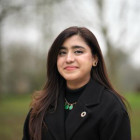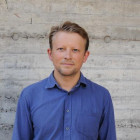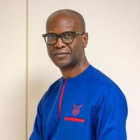Debate
The OEB Annual Debate: This House Believes That Catering to Shorter Attention Spans is Dumbing Down Education
Date Thursday, Dec 4 Time – Room: Potsdam I
As attention spans shrink and learners increasingly demand fast, visual, and interactive content, educators and trainers are rethinking how learning is delivered. Bite-sized videos, gamified lessons, instant feedback loops, and microlearning platforms are becoming the new norm. But is this evolution a smart adaptation to the realities of modern attention - or a dangerous concession to distraction culture?
Has education truly improved by aligning itself with the consumption habits shaped by social media and short-form content? Or are we trading rigour and reflection for convenience and speed? Are we making learning more accessible and engaging, or are we hollowing it out, replacing deep thinking with shallow retention?
And more importantly, are we over-prioritising short-term learning gains at the expense of long-term, holistic outcomes? In trying to meet learners where they are, are we ultimately lowering the bar?
Join the debate and explore whether this shift is progressive innovation - or a subtle erosion of what education is meant to be.

Aruj Khaliq
AI Policy Advisor & Intervention Scientist, -
Aruj Khaliq is an award-winning intervention scientist, Artificial Intelligence and Sustainability governance specialist, and 30 Under 30–nominated educational leader whose work has created opportunities for over one million individuals across the Global South over the past 13+ years. A postgraduate scholar at the University of Oxford, she specialises in designing large-scale social interventions and policies at the intersection of AI governance, human agency, and sustainable development.
Aruj is the founder of ALIF, an executive advisor of Pakistan’s National Artificial Intelligence Task Force, and Head of Academics at Learning Alliance International. She has designed and led pioneering interventions including the world’s first systematic review on AI and Teacher Agency, a global comparative analysis of AI teacher-readiness policies, and advisory roles supporting governments and organisations in AI Literacy programme design and implementation. In sustainability education, she is the architect of Pakistan’s largest school-based intervention, ECO Schools, and the brains behind IB Ripple- the world’s first research journal for IB students. She has also contributed to influential global projects such as the Youth Support Programme (University of Warwick), Generation Justice (European Union), and Think–Educate–Aspire (University of Birmingham), advancing youth capability, digital equity, and pedagogical innovation.
In 2023, Aruj became the only Pakistani invited by UCL to present at UNESCO Headquarters, Paris, where she introduced the first Global South–driven theoretical framework on Whole School Approaches to Sustainability. Her authorial work appears in international venues, with a major Bloomsbury publication forthcoming in 2026. Her impact has been recognised by UNESCO Youth, UNDP, national and international media, and the International Baccalaureate. She currently divides her time between the UK and Pakistan while advancing research and policy in AI governance and sustainability interventions.

Adam Salkeld
Co-Founder and Director, Digital Learning Associates
After studying at Cambridge, Adam Salkeld began his career on the BBC’s Graduate Training scheme, working for 12 years as a journalist, producer, and executive producer on shows like Panorama and documentaries filmed on every continent. Post-BBC, Adam worked in independent TV, producing documentaries for international broadcasters and videos for organizations like UNHCR and Oxford University. In 2016, he co-founded the award-winning Digital Learning Associates Ltd, which brings broadcast quality standards to education video. DLA is now a leading supplier of authentic video to the language learning sector, with over 15 million learners worldwide using its content. Adam has also served as a non-executive director for the Aga Khan’s Nation Media Group and is a regular speaker at education and media conferences. He lives in the UK and East Africa with his husband, Kassim.

Philipp Lorenz-Spreen
Computational Social Scientist, Center for Adaptive Rationality (Max Planck Institute for Human Development)
Philipp Lorenz-Spreen is a junior research group leader in the field of “Computational Social Science” at the Center Synergy of Systems at the TU Dresden. He has also been conducting research at the Max Planck Institute for Human Development since completing his doctorate in theoretical physics at the TU Berlin on the dynamics of collective attention. His research focuses on the complexity of self-organized online discourse and its impact on democracies worldwide.

Max Bankole Jarrett
Vice Chairperson, The Africa-Barbados Heritage Initiative (TABHI)
Max Bankole Jarrett has over 35 years of professional experience in the fields of broadcast media and communication, and international policy affairs. In 2017 he served as the final Director-in-charge of the Geneva-based Africa Progress Panel, chaired by the Nobel Laureate and former UN Secretary - General, Kofi Annan. Max began his career as a current affairs broadcaster with the BBC World Service in London in 1990 working on the BBC's flagship programmes for its African audience: Focus on Africa and Network Africa. In 2001 he began work as a speechwriter, communication team leader and senior programme management officer in the United Nations system (for 17 years). After serving as Director of Strategy and Delivery in the Office of the President of the African Development Bank from July 2023 to July 2025, he was appointed Divisional Manager, Editorial, Media Relations and Social Media of the African Development Bank Group effective 1 August 2025. A descendant of the 1865 Barbadian emigrants to the Republic of Liberia, he currently also serves as the Vice Chairperson of the newly incorporated Africa-Barbados Heritage Initiative foundation. Max received his BSc. (Hons) in Economics in 1990 from the London School of Economics and Political Science, and his M.A in African Studies (Specialism: The Political Economy of Africa) in 1996, from London University’s School of Oriental and African Studies.
Moderator

Michael Onyango
Agenda Setter, The 4gotten Bottomillions
Michael Onyango is the founder of Africa’s Forgotten Bottom Millions (4BM), a transformative WhatsApp platform that reaches over 500,000 people weekly, providing young Africans across several countries with access to career opportunities through digital technology. Since 2016, 4BM has shared over 500,000 verified opportunities, including scholarships, fellowships, grants, and job offers, helping young people gain skills and build successful careers.
Michael has been at the forefront of economic empowerment, chanmpioning the use of frontier technoolgies, leading initiatives across interdisciplinary sectors within governments, NGOs, and the private sector in Africa and globally. He served as a key member of the Distributed Ledgers and Artificial Intelligence Taskforce under the Ministry of ICT, Kenya, and was formerly the Minister responsible for Communication, Information, and Technology in the County Government of Kisumu.
Currently, Michael is a Senior Skoll Foundation Fellow, an alumni Fellow in Social Innovation from the Rockefeller Foundation, and serves on the Advisory Board of the African Blockchain Institute. He actively works with young Africans, leveraging technology to drive impactful change. Michael has also played a significant role in shaping Kenya’s creative industries, including co-developing the roadmap for the sector in collaboration with IBM, positioning it as a catalyst for economic growth and outlining strategies to double its contribution to Kenya’s GDP.